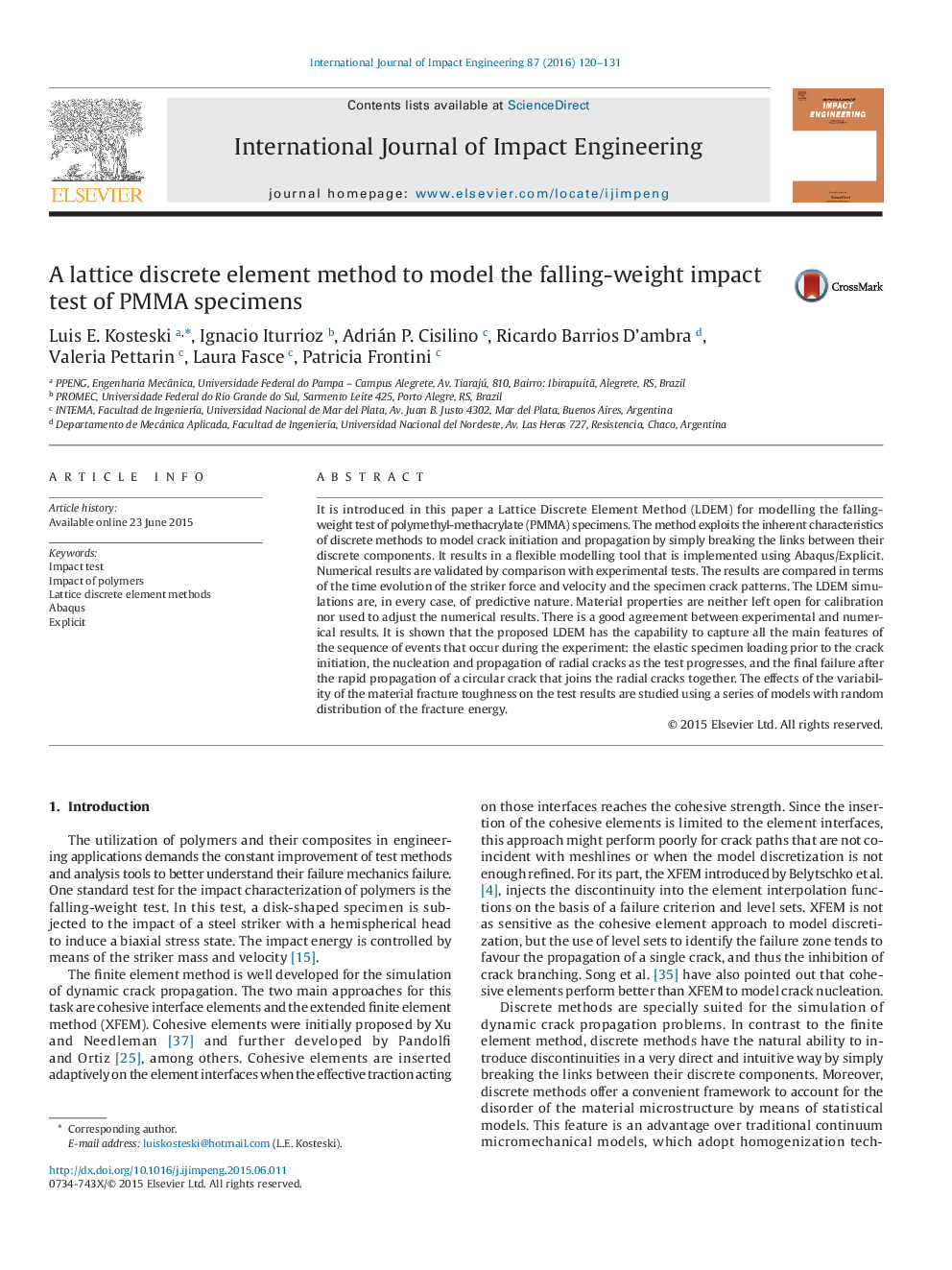| Article ID | Journal | Published Year | Pages | File Type |
|---|---|---|---|---|
| 779176 | International Journal of Impact Engineering | 2016 | 12 Pages |
•The falling-weight test of polymethyl-methacrylate (PMMA) specimens was modelled with the Lattice Discrete Element Method (LDEM).•The Lattice Discrete Element Method is implemented using Abaqus/Explicit.•The results are compared in terms of the time evolution of the striker force and velocity and the specimen crack patterns.•There is a good agreement between experimental and numerical results.•The variability toughness effects on test results are studied using models with random distribution of the fracture energy.
It is introduced in this paper a Lattice Discrete Element Method (LDEM) for modelling the falling-weight test of polymethyl-methacrylate (PMMA) specimens. The method exploits the inherent characteristics of discrete methods to model crack initiation and propagation by simply breaking the links between their discrete components. It results in a flexible modelling tool that is implemented using Abaqus/Explicit. Numerical results are validated by comparison with experimental tests. The results are compared in terms of the time evolution of the striker force and velocity and the specimen crack patterns. The LDEM simulations are, in every case, of predictive nature. Material properties are neither left open for calibration nor used to adjust the numerical results. There is a good agreement between experimental and numerical results. It is shown that the proposed LDEM has the capability to capture all the main features of the sequence of events that occur during the experiment: the elastic specimen loading prior to the crack initiation, the nucleation and propagation of radial cracks as the test progresses, and the final failure after the rapid propagation of a circular crack that joins the radial cracks together. The effects of the variability of the material fracture toughness on the test results are studied using a series of models with random distribution of the fracture energy.
